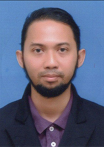Multilingualism in Higher Education: Enhancing Language Proficiency and Cultural Understanding

Special Issue Information
Dear Colleagues,
In today's globalized world, multilingualism has become increasingly important in higher education. As universities strive to prepare students for international careers and foster intercultural competence, the promotion and exploration of multilingualism have gained significance. This special issue aims to shed light on the various dimensions of multilingualism in higher education, focusing on how it enhances language proficiency and cultural understanding among students and educators.
Scope and Objectives:
This special issue seeks to bring together research and scholarly contributions that investigate the role of multilingualism in higher education settings. It aims to explore the benefits, challenges, and strategies associated with fostering language proficiency and cultural understanding in multilingual environments. The issue will address a range of topics, including but not limited to:
1-Multilingualism and academic success: Examining the correlation between multilingualism and academic achievement, language learning outcomes, and cognitive benefits.
2- Language policies and practices: Analyzing language policies in higher education institutions, their impact on multilingualism, and effective strategies for promoting language diversity.
3- Teaching and learning approaches: Investigating innovative pedagogical approaches, instructional strategies, and assessment methods to support multilingual learners and enhance language proficiency.
4- Intercultural communication and understanding: Exploring how multilingualism contributes to intercultural competence, fostering understanding and respect among diverse student populations.
We believe that this special issue will contribute to a deeper understanding of the benefits and challenges of multilingualism in higher education. It will provide insights into effective strategies, policies, and practices that can enhance language proficiency and cultural understanding among students and educators. We look forward to receiving your valuable contributions.
Dr Mohd Norazmi Nordin









